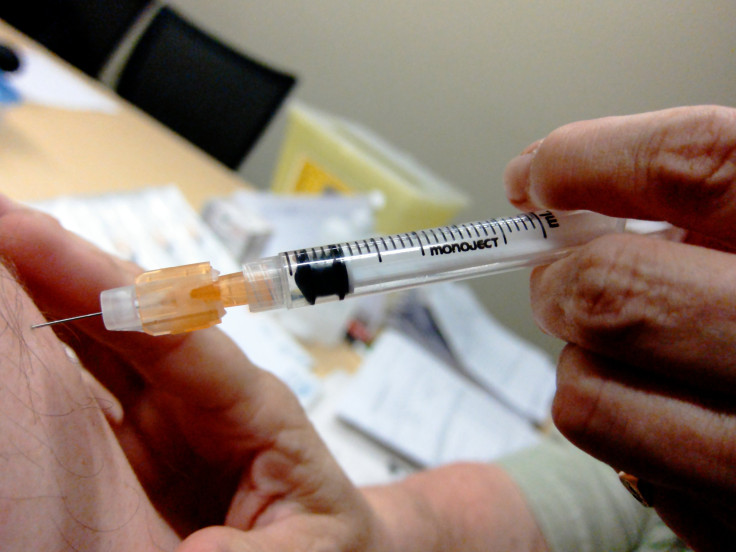The Flu Vaccine Isn't Perfect, But It May Prevent Cases Of Flu-Associated Pneumonia

With the flu season about to hit its full stride, it’s worth reminding ourselves of the imperfect, but still valuable, benefits that flu vaccination can offer.
According to a new study published in JAMA this Monday, those who are hospitalized with flu-associated pneumonia are less likely to have gotten a flu shot recently than a control group of non-flu-associated pneumonia patients, suggesting that the vaccine does indeed provide a barrier of protection against developing flu-associated pneumonia.
Though it might seem rather obvious that the flu shot can reduce the incidence of influenza's more severe complications like pneumonia, the study authors note that there’s been relatively little research looking at that specific question, and the research that does exist has its flaws.
“Although previous studies focusing on the prevention of all-cause pneumonia have suggested a modest effectiveness of influenza vaccines, using all-cause pneumonia as the outcome for influenza vaccine effectiveness assessments is problematic because influenza is responsible for only a fraction of all pneumonias and varies seasonally, resulting in an underestimation of the true vaccine effectiveness,” they explained.
To circumvent these limitations, the authors looked at three years worth of data (January 2010 to July 2012) from the Etiology of Pneumonia in the Community (EPIC) Study, conducted by the Centers for Disease Control and Prevention. The EPIC study collected extensive information from previously healthy patients over the age of six months who had become hospitalized due to their community-acquired pneumonia. It spanned across eight hospitals from Nashville, Tenn.; Memphis, Tenn.; Chicago, Ill.; and Salt Lake City, Utah.
This allowed the current authors to isolate confirmed cases of flu-associated pneumonia, and compare these patients to other pneumonia patients, specifically looking at their vaccination history.
Overall, they found that 28 of the 162 flu-related cases of pneumonia (17 percent) had recently been vaccinated compared to 766 out of 2605 cases in the latter group (29 percent). According to their subsequent calculations, this meant that the vaccine was about 57 percent effective in preventing later cases of flu-associated pneumonia from materializing during the 2009 to 2012 flu seasons.
Though there remains a need to confirm these findings among more specific populations — older adults and people with weak immune systems for instance — the authors are hopeful that their research “could be used to inform subsequent estimations of the national number of hospitalizations for pneumonia averted by influenza vaccination.”
According to the CDC, 5.5 percent of deaths reported to them so far this year through their “122 Cities Mortality Reporting System,” were due to pneumonia and influenza.
Source: Grijalva C, Zhu Y, Williams D, et al. Association Between Hospitalization With Community-Acquired Laboratory-Confirmed Influenza Pneumonia and Prior Receipt of Influenza Vaccination. JAMA. 2015.



























